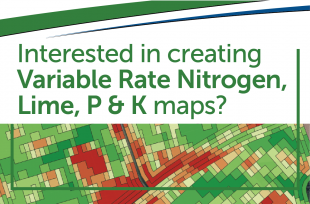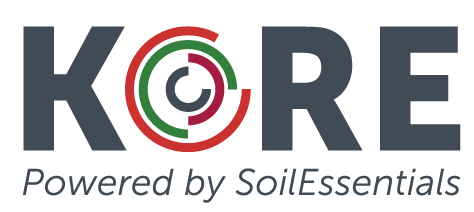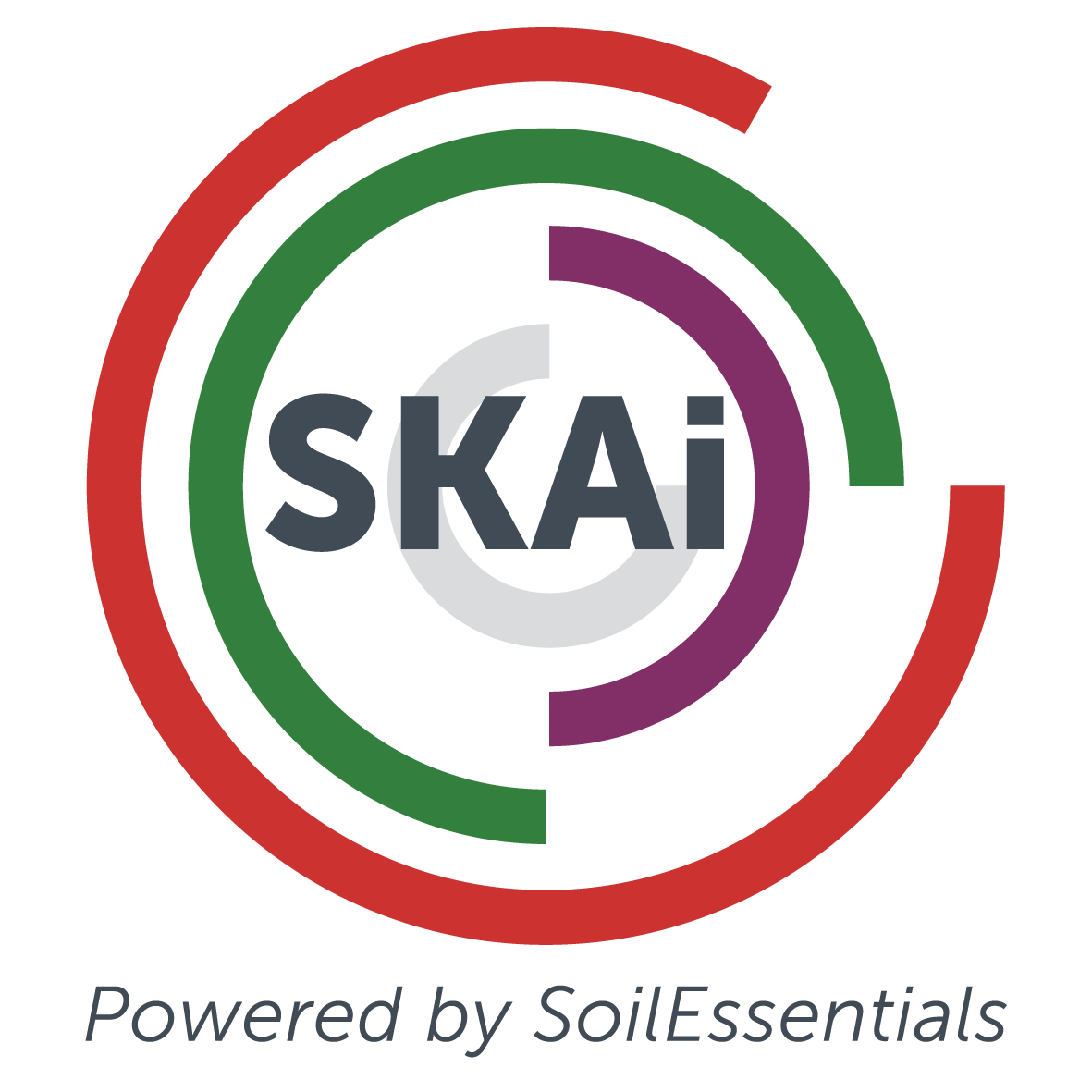Douglas talks about his contracting business and that by replacing memory sticks with mobile data transfer has saved him and his compnay hundreds of hours, and thousands of miles travelling each year.
Read more from the Farmer’s Guide feature:
Remote control
Replacing memory sticks with mobile data transfer technology has saved a Scottish contractor hundreds of hours, and thousands of miles travelling each year. David Williams reports.
Crop Services (Scotland) Ltd provides a full agronomy and crop management service to growers across southern Scotland. Set up in 1989 by the Stephen family following a management buyout from Crop Chemicals Ltd, its founder Grant Stephen had been involved with agrochemicals and applications since 1962, when he operated a cab-less Massey Ferguson 35 tractor with a 32ft rear-mounted sprayer and saddle-tanks. Now the fleet of modern spreading and spraying machinery is at the cutting edge of precision farming-based application control, to ensure optimum results. “Of course precision farming was practised hundreds of years ago, by the farmers who put in hedges and fences to divide areas of different soil types,” said director Douglas Stephen. “Walking behind their ploughs they knew every inch of the soil. Then we received grants to rip out hedges and farm larger fields, but then wonder why yields vary when we make blanket decisions regarding crop health.”
The company looks after farmers from the River Tay in Scotland down to the Tyne, and from Fife in East Scotland to Dumfries in the west, from its headquarters at Kelso, Roxburghshire and a depot at Pitscottie, Fife.
Specialist service
The company’s core business is providing agronomy advice, and selling and applying agrochemicals and it employs 11 full-time sprayer operators, 7 agronomists, 4 engineers, 20 office and administrative staff and 8 part-time employees.
“No one manufacturer supplies everything needed, so we run a variety of makes,” explained Douglas. “The Agribuggies are small and light, especially compared with our larger self-propelled sprayers but, because they are so light footed, they can operate weeks earlier in the spring and longer into the autumn, and sooner after rain. They are fast on the road and easily moved around so work similar hours per season to the bigger machines.” Sprayers and spreaders travel up to 100 miles from bases, and the topography and range of crops means versatility is important. As widths have increased, weight savings have been achieved by fitting alloy booms on the sprayers. This can be as much as 1.5t for 28m booms, compared to steel, and Douglas said that the large area of potato work carried out means even weight distribution between axles is especially important for the soil, and accuracy.
Trimble sales engineer James Szabo agreed lighter booms are a benefit. “When large, rear-mounted booms swing they can cause the whole sprayer to yaw, and affect auto-steer systems as these can’t anticipate the movement and can only react to correct the track. Lighter booms a‑ ect the vehicle less, making it easier to maintain a precise path.”
The first precision farming equipment used by Douglas was a Trimble 150 light bar, for grassland applications, which replaced unpopular blob markers and, later, Trimble Farm Works iPAQs were used to record locations for soil sampling.
Precision placement
Fields were split using grid lines and the first variable rate applications were achieved using Farm Works software to adjust lime application through a Raven controller. “We knew what we wanted to achieve but were largely self-taught explained Douglas. “We obtained specialist advice regarding the hardware and product control and it proved successful. I still see the spade as the most important tool, and the cheapest, and our ethos is that rather than providing customers with a blanket treatment better returns are achieved by putting the product where it is needed. More than 80 per cent of the time a variable rate application achieves better results than a blanket treatment across the field.”
Douglas explained that soil acidity is a common problem but easily and cheaply identified and corrected. “This was the primary issue to sort out and results were available quickly after testing.
Lime spreading became a major part of our business, and variable rate applications helped achieve equilibrium across fields making crop management easier.”
More recently, tests for P&K have become cheaper and easier to obtain and the company is often asked to check available nutrient levels too. “Optimising soil conditions for growth maximises plant health and helps them fight off disease better than if they are stressed,” he said.
An issue until recently was that having assessed soil conditions, results had to be sent away so application schedules could be designed and costed for consideration by the customer and then, when agreed, an application map had to be created for use by the spread controller.
“We needed to bring soil analysis results and GPS data together for interpretation and this was where we hit a brick wall,” said Douglas. “We had a good relationship with SoilEssentials and relied on the company to put together our application maps, based on results obtained, the target pH agreed with the farmer, and the neutralising value of the material to be spread. But, any alteration to the spreading plan required another set of maps from SoilEssentials and, even then, we could arrive at the farm to find some of the lime had been used elsewhere reducing the amount available, and another set of maps was needed at the last minute. Each new set meant delivering another memory stick to the machine’s controller but, when data connectivity started appearing on mobile phones, my dream was to have a web-based field mapping system for access from anywhere.
In-house solutions
SoilEssentials built its own web-based precision agriculture management tool, which was rebranded specifically for Crop Services as MAPhSMART precision farming system, which has now been used by Crop Services for three years, and become an essential tool. Field boundaries are marked, soil analysis data input and application maps can be created by the company, targeted to the customer’s requirement and the product being applied. “This put us in control for the first time in 15 years,” said Douglas, “but still required the use of data transfer by USB.
Rural availability was dreadful in our operating area though, necessitating trips to local with hotspots by users to receive data.”
“Trimble Office Sync service has had the ability to send les wirelessly to tractor consoles for five years,” explained James, “but recent updates to our screens have made it possible to develop and use third-party apps, designed to meet bespoke requirements. SoilEssentials has developed a dedicated app, allowing farmers and agronomists to create application maps in the MAPhSMART portal and send them directly to the Trimble console on the Crop Services spreader or sprayer.”
Douglas was quick to take advantage of the upgrades and worked with SoilEssentials as the new software was developed. He said the upgrades have made a big difference; “Operating Gatekeeper and Farm Works to transfer data is labour intensive, but MAPhSMART requires just one function and allows maps to be sent efficiently, direct to the spread controller.”
Crop Services is the first Trimble customer to operate the system and James explained that it was SoilEssentials’ in-house team of developers which made it a pioneer of the new technology.
“This integration between the web-based map software, the data and the spreader hardware means we can select the machine which will carry out the work on our system and seamlessly send instructions to it from our own portal in seconds,” said Douglas. “We have always been a service-based company and this allows us to be even prouder of the service we provide. We used to rely on third party involvement while working with our customers but now we sit at their kitchen table, talk through the soil nutrition, creating plans and costings from start to finish in one visit and, if any adjustments or compromises are needed, these are agreed there and then. We create the map and send it straight to the spreader.”
Natural partners
Douglas said his company has invested heavily in precision farming equipment over the years, but that SoilEssentials and Trimble were a natural choice of partner. “Trimble has been interested in what we do, listened to our opinions and took notice of our requirements while no other precision farming equipment company has bothered. We have always looked forward in terms of future developments and were delighted when Trimble’s North Europe sales manager, who is based in France, asked to visit to find out about us and how we use the technology. SoilEssentials’ team has been excellent too, and our relationship has resulted in the development of a system which allows direct communication with our machines and is ideal for our needs.”
Developments in progress
For the future Douglas said he would like to see increased integration with farm recording software. Information such as weather information at each site where machines are working would also be valuable for task planning as currently each display can provide weather information, but only for the owner’s registered address. Independent section control to individual nozzles is also something he would like, using the CenterPoint RTX correction service. He commented that Trimble’s X-Fill technology, which allows machines to work with accurately for up to 20 minutes after losing the correction signal, has proved invaluable as his machines often work in hilly areas where temporary loss of signal is common. James explained that even better performance is available through x-Fill premium, which maintains full RTK accuracy indefinitely after a signal is lost, provided the display is not switched off.
Fleet management
The ability to ‘see’ on the map every machine working through Trimble’s Connected Farm is a useful management aid, but Douglas said that, at first, operators were suspicious that their performance was being monitored. “Now they are used to it, they see it as an advantage because field maps sent direct to the machines save them sitting in gateways for 90 minutes waiting for someone to arrive with a memory stick. The annual subscription cost is equivalent to just two trips between our Kelso and Fife depots delivering USB sticks, and that excludes the cost of the sprayer or spreader out of action while it waits for the upload.”
Cutting edge predictions
SoilEssentials is also at the cutting edge of new technology with its involvement in the KORE crop research project. A new version of EssentialsMap, which integrates with Trimble’s Connected Farm, uses ‘layers’ of information to help plan crop applications and forecast yields. Field maps are overlaid with soil sampling and conductivity data, previous yield maps, satellite images from the European Space Agency’s Sentinel satellites and high resolution images from drones, as well as green area index statistics gathered during field tasks. By working backward from achieved yield information at harvest, progress during future growing seasons can be compared and informed judgements can be made regarding crop treatments and care. “We want to use all the information available to build a bigger, better picture of the fields and gain better understanding of limitations to crop development.
High-resolution images taken using drones 24 hours before an intended application can be used to make decisions based on crop populations and development in different areas of the field. There is potential to save desiccant costs by taking images immediately before spraying and creating maps for variable application – the opportunities for improved accuracy and efficiency are endless,” he said.
The company’s recent investment in two drones will allow further services to be offered, including plant counts for which there is demand particularly for higher value crops such as potatoes, and allowing yields to be accurately predicted. Douglas explained that this service is under development and not yet commercially available, although there has been considerable interest from potential users.
Maximising availability
Telematics through the Trimble hardware is another area of potential interest as the company’s hard-working sprayers and spreaders often work more than 1,000hrs/year, and remote monitoring would allow better planning of preventative maintenance reducing costly repairs and downtime.
Fuel level information for each machine would allow timely, planned deliveries to working sites, and knowledge of total fuel used for operations would provide better comparisons between machines. “We tend to update two sprayers or spreaders each year and there are always options such as mechanical or hydrostatic transmission to consider. If we had accurate data regarding operating costs, we could be more confident about what best suits our situation,” he said.
Confidence in system
One thing Douglas is certain about is his choice of application control system and provider. “When we do replace machines our system of choice is Trimble, and it will remain so as long as the products continue to evolve. The catalyst for us to move to Trimble originally was its Connected Farm service and, since then, the seamless integration of extra functions such as those from SoilEssentials,” he said.
07 July 2016 News
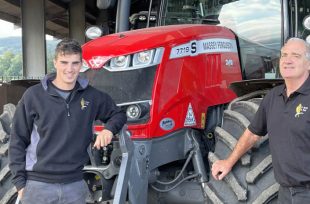
Featured Case Study
Angus Bryce, D Bryce & Sons
Find out more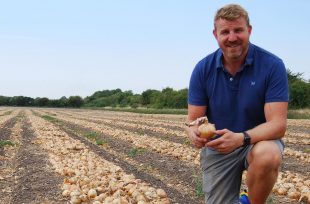
Featured Case Study
Tim Young, JS Young Farms
Find out moreSave on costs by targeting your inputs to soil types and conditions.
Use our precision farming platform, eligible under the new SFI scheme in England!
Find out moreUse KORE, our independent precision farming platform to improve your client management, increase efficiency and enhance your agronomy and soil sampling services.
For more information call the office on 01356 650459 (option 1) or Ed on 07425 338545.

For XCN, GFX, NAV 900 and other Trimble RTX displays
Renew your RTX subscription from £260pa*
Find out moreIf you're feeling the winter blues about your RangePoint RTX renewal, warm up with a new subscription from only £260 pa*
SoilEssentials are your longstanding, independent Trimble authorised dealer in Scotland and Northern UK.
To renew your RangePoint RTX subscription call the office on 01356 650459 (option 1), Rod on 07824 617153 or Bob on 07827 480056.
*Ts&Cs apply. Price applies to a 5-year upfront contract. Open to all RTX customers.


